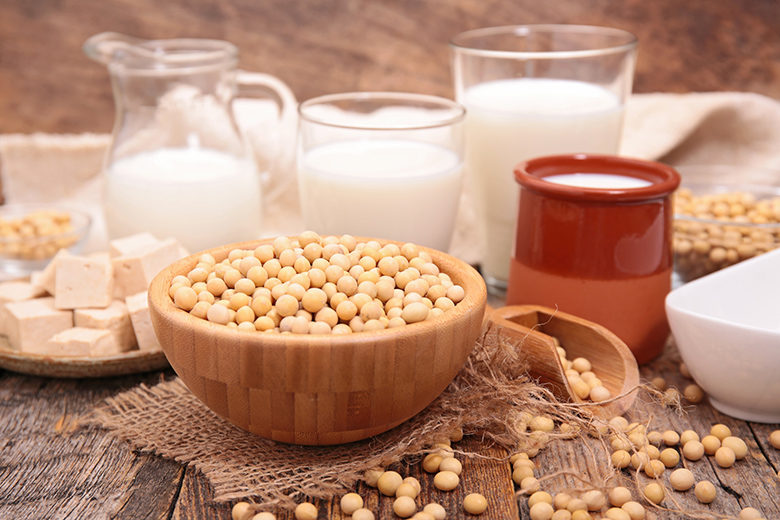
Whether the conversation is about cancer or vegan diets or just plain tastiness, everyone has something to say about soy. There’s a lot of misinformation out there — perhaps from well-meaning sources, but potentially troublesome nonetheless. Here’s an attempt to offer some clarity.
First, let’s talk about the breast cancer risk. While some early studies in rodents showed questionable effects of soy, we now understand that rats and humans metabolize estrogen very differently! Large studies in human females (rather than their furry little counterparts) show that whole soy foods such as miso, tofu and edamame do not increase risk of primary breast cancer or recurrence.
Meanwhile, data suggesting that soy foods may reduce breast cancer risk is exciting and promising. However, such evidence comes mostly from studies where women had been eating soy foods over a lifetime and therefore had early exposure. We don’t know if starting to eat soy foods later in life confers the same benefits. Women in these studies also may have had other diet or lifestyle habits that contributed to their reduced cancer risk. If you have a personal history of breast cancer or are at high risk, go ahead and enjoy the soy, just keep the portions practical. Research suggests a limited dose-response benefit of soy foods with regard to breast cancer recurrence and total mortality: about 10 grams of soy per day (the amount in a cup of soy milk) seemed to offer the maximum benefit.
Whole soy foods are a great source of calcium, protein and other nutrients. They’re extremely versatile and can be prepared in many delicious ways. But they’re not magic. They won’t, in and of themselves, make you lose weight, or relieve every future hot flash, or result in other jazzy phenomena you may read about.
There’s less research on concentrated soy products — such as soy protein isolate — which are sometimes used as meat analogs. Processed foods with added soy protein are still processed foods, and likely not the best for our health for a number of reasons including typically sky-high amounts of sodium. There is also insufficient data to show benefits with soy isoflavone oral supplement pills.
Ingredients like soybean oil and soy lecithin are often found in small amounts in dietary supplement pills. This amount of soy is trivial unless, of course, one has an extreme allergic reaction to soy.
Soybean oil isn’t necessarily unhealthy, but it does have a higher ratio of omega-6 to omega-3 fat compared with, say, olive oil. So stick with the latter for you salad dressings and sautees.
One final thing to keep in mind: Most soy crops grown in the United States are genetically modified unless they are labeled certified organic, in which case you’re in the clear. So if you’re concerned with GMO, this is one food where you’ll want to check labels.




